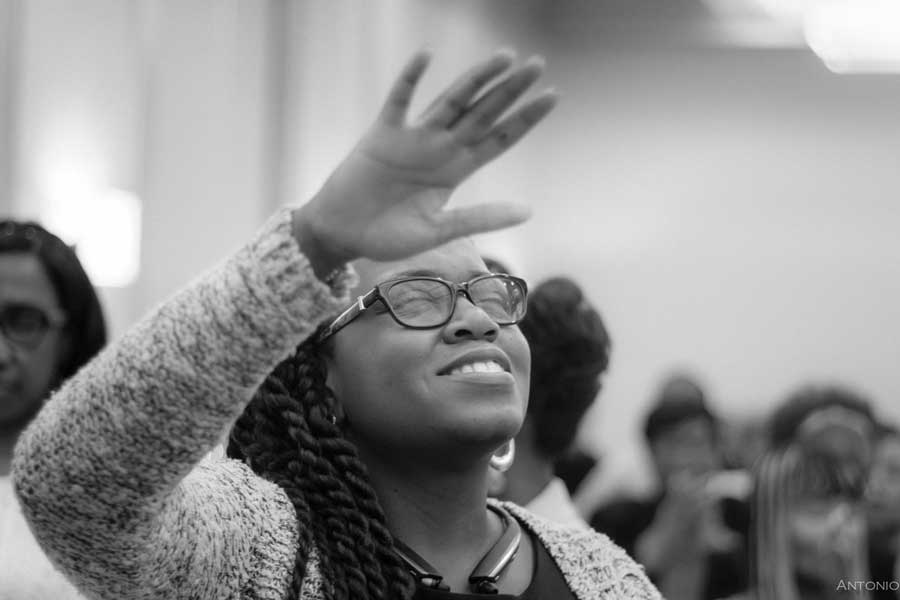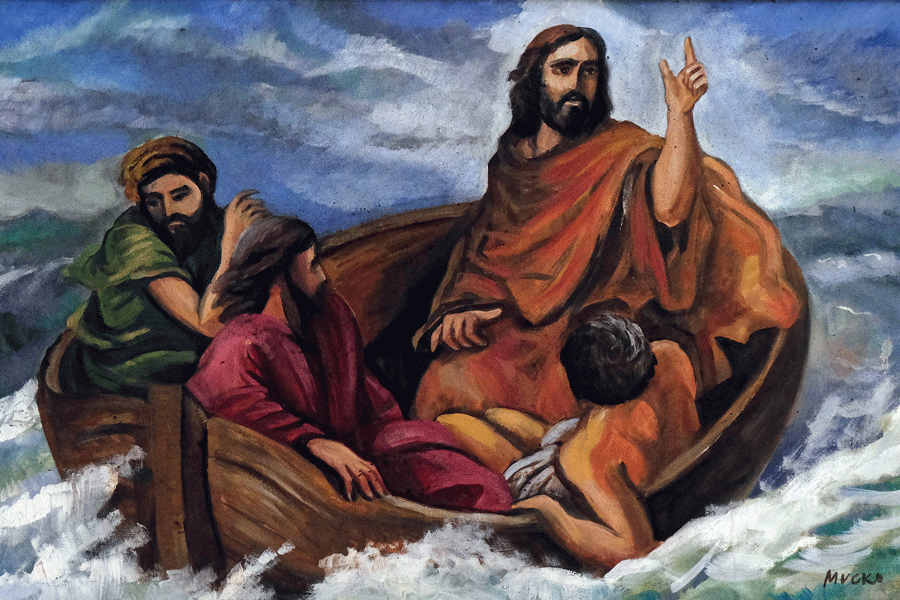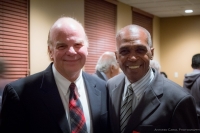Recent Blogs
Many Christians feel there is no sense in praying because God has already predestined or preordained His plans for our lives so we cannot bring about change through our prayers. God's will is already established so what difference will my prayer make? I was thinking about this and initially thought "Hey, they're right" but then this thought was immediately followed by, "Hold on a minute there, so why would Jesus teach His disciples to pray and the Bible tells us to pray without ceasing?"
The first situation that came to mind was King Hezekiah. Hezekiah was told by the Prophet Isaiah, when he was sick and near death, that the Lord said he was going to die and not live. Hezekiah prayed and God responded to Hezekiah's plea by extending his life for an additional 15 years! (Isa. 38:1-5). We gain much insight by observing how Hezekiah prayed. He reminded God how he had walked before Him in truth, with a loyal heart, and had done what was good in the Lord's sight and he wept bitterly. He brought his faithfulness to God's remembrance and the Lord remembered His promises to those who walk uprightly and could not go against His own written Word. The prophetic word spoken from the Lord regarding Hezekiah's death was superseded by God's written promises. In essence, Hezekiah was reminding God about God's character. This is a good lesson for us regarding how to pray. We also need to remember that God has a Father-child relationship with us. Which father do you know will not heed the sincere repentance of his child?
Although my focus is on prayer, I also feel it important to bring to your attention that the prophetic word spoken by Isaiah concerning Hezekiah's death did not come to pass. Did that make Isaiah a false prophet? No, he spoke accurately the word given Him by the Lord. But this shows us that personal prophecy is conditional. Only Scriptural prophecies are unconditional.
Further reflections on prayer led me to thinking, if God's will is already established then why, in teaching the disciples to pray (Mat. 6:10), did Jesus tell them to pray "thy kingdom come thy will be done on earth as it is in heaven"? If God's will is already done on earth why are we praying for it to be done? My understanding of this is that God has established His plans but there is the need for us, as those who are joint heirs with Jesus Christ, and who therefore have legal authority in the earth (Gen. 1:28, Mat. 28:18), to partner with God to cause His will to come to pass in the earth. Jesus prayed, "not my will but thy will be done" with regards to his upcoming crucifixion (Lk. 22:42). This means that Jesus could have chosen not to go through with the laying down of His life and God's plan of redemption for mankind would have been disrupted. Jesus had to play His part in obedience to God for God's will to come to pass. Similarly, our obedience in following God's commands will cause His kingdom to come on earth even as it is in heaven. As we obey His commands regarding prayer, love for Him, for ourselves and for others; forgiveness; grace; mercy; wisdom; humility; peace; joy; courage; patience; perseverance; hope; and faith - we will cause God's will to be accomplished in the earth even as it is in heaven. Humanity is waiting with earnest expectation for the revealing of the sons of God who will deliver them from the bondage of corruption into the glorious liberty of the children of God (Rom. 8:19, 21). As we line up our prayers with God's Word we partner with Him for His will to be accomplished in the earth.
If you are still not convinced that prayer changes things let's look at the Prophet Jonah. God sent Jonah to prophesy to the people of Nineveh that God was going to destroy them. Jonah ran away from this assignment because He knew that if the people cried out to God He would be merciful to them and Jonah would be made to look the fool. That's exactly what happened!! God heard the cries of the people. God says, a broken spirit and a contrite heart He will not despise (Ps. 51:17). Psalms 34:18 says, "The Lord is near to those who have a broken heart, And saves such as have a contrite spirit." If we understand the character of God then we will know the kinds of prayer that will bring about change.
What about Moses? Moses reasoned with God about destroying the children of Israel (Ex. 32:9-14). He reminded God of the implications to God's image among the heathen if He followed through with His proposed action. God did change His mind. I also thought about Abraham's discourse with God concerning Sodom and Gomorrah (Gen. 18:23ff). God laid down the condition to be met for Him to change His mind to destroy Sodom and Gomorrah. Although the condition was not met and the cities were destroyed, we see God's willingness to be reasoned with in prayer (Is. 1:18). Again, Abraham appealed to God's promises regarding His faithfulness to the righteous.
We can learn another lesson about prayer by looking at King David. There is a principle that God will never circumvent no matter who you are. Prayer will not change a higher law. For example, David prayed for the son he had with Bathsheba to live. However, the law of sowing and reaping was in effect. Although God forgave David of his sin the consequences of his sin could not be changed. God has exalted His Word above His own name (Ps. 138:2b). This is why we must be very careful about the decisions we make. Our decisions have automatic consequences established by God's law, as outlined in His Word. We cannot pray for the law of gravity to change and expect God to answer so that we can float. Similarly, sometimes we are praying for things to change that we have set in motion by our own decisions and then expect God to step in and deliver us. Rather than pray, we need to take the decision to change our behaviour and then the situation will change. In that instance, our prayer should be for the strength to change and not for God to change the consequences of our action. Many times, we don't see answer to prayer - an expected or desired outcome - because God gave us the freedom to choose and does not have the legal authority to change the outcomes that arise from our right to choose. It's like saying, I want the right to choose but I don't want to pay the price of my wrong choices. This is where responsibility comes in. This is why it doesn't make sense to pray for some people to be healed. Many times, it's the choices we make that make us ill. Lack of sleep, worry, anxiety, fear, poor diet, lack of exercise that lead to many manifestations of sickness. Praying is not the answer in this case. Changing your behaviour is.
A change in attitude can change God's heart. God is compassionate and merciful. As we pray, we need to remind Him of His unchanging character and His unchanging Word (this is why we need to know His Word). God cannot deny these two things. He has to act in accordance with His character and in accordance with His Word.
Shalom.
About Dr. Valerie Kerr
Dr. Valerie Kerr is an ordained leader at Covenant Community Church in Kingston and a Lecturer in the Faculty of Medicine at the University of the West Indies, Mona Campus. She will be joining us as a facilitator at the October 14, 2017 Global Prayer Summit. Click here to read her profile.










